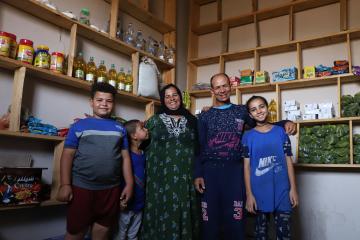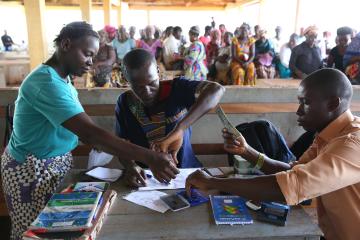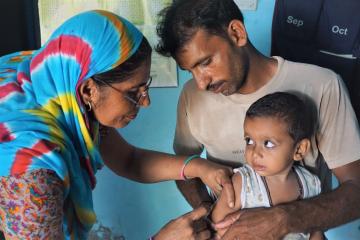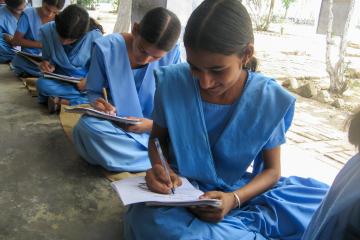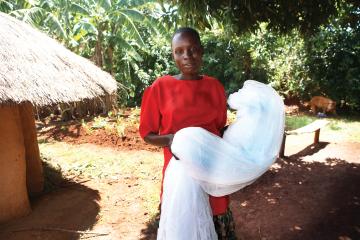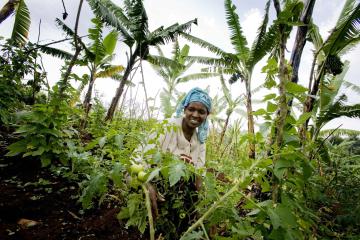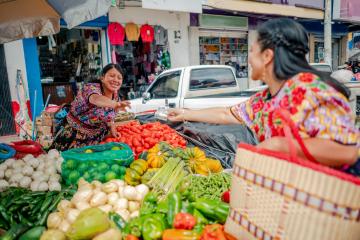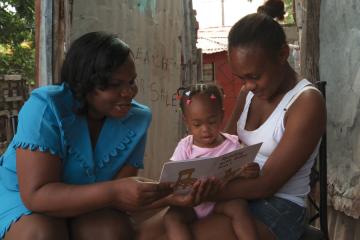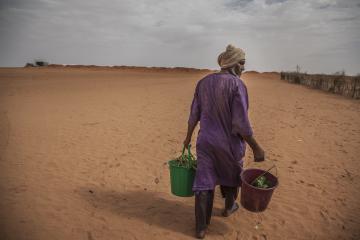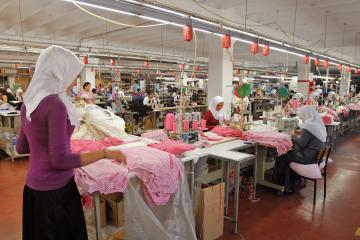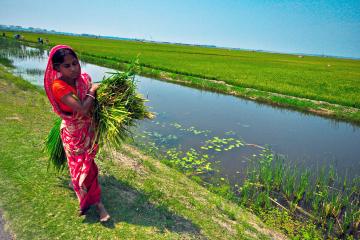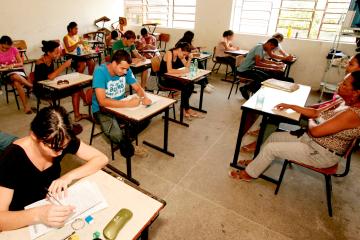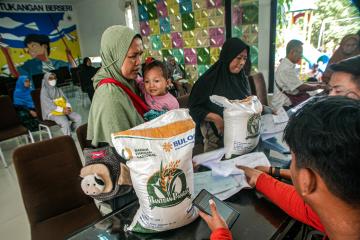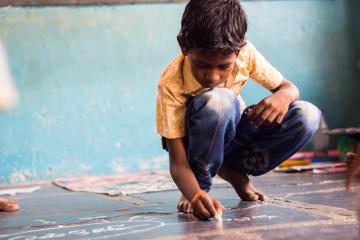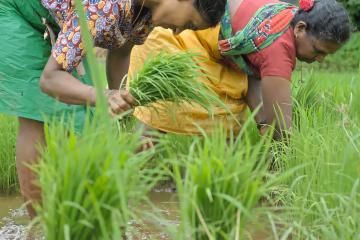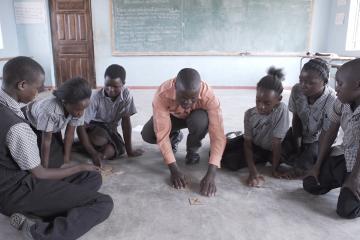Today, hard-won progress is at risk.
In past decades, the world has made important gains in reducing poverty and creating opportunities for people and families to thrive. Behind these gains lies a strong foundation of economic growth, political will, smart investments, innovation, and a growing commitment to use data and evidence to inform policy. But existential challenges remain.
700 million people still live in extreme poverty. 42 million people in the United States live below the poverty line. Clean water, basic health care, and stable employment remain out of reach for many. Budgets are tight and foreign assistance is being cut, raising urgent questions about the future.
With fewer resources, the stakes are higher—but so is the potential for impact if we focus on solutions that are both effective and cost-effective. Data and evidence can help prioritize programs that truly make a difference.
This Evidence Effect page and accompanying blog series share what we have learned about improving the lives and livelihoods of people who are experiencing poverty. We discuss how these lessons have changed thinking, investments, and people's lives. This page offers powerful examples of effective development programs that reflect these lessons.
As we enter a new era marked by tighter budgets, growing inequality, and intensifying scrutiny, our hope is that these ideas contribute to debates and decisions on the future of development spending.
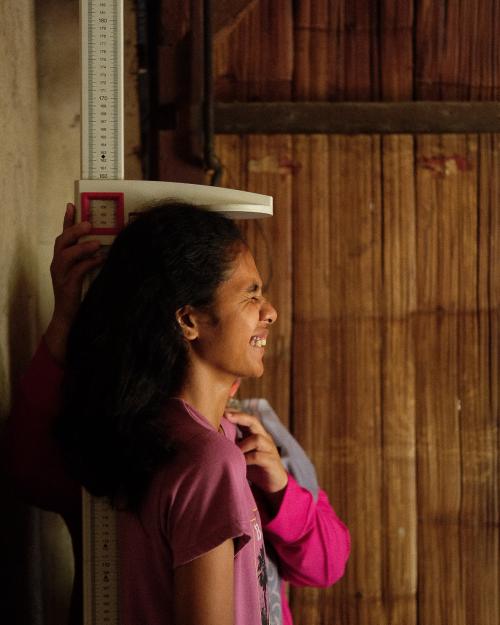
Evidence in action
The Evidence Effect highlights 31 examples of life-changing programs that warrant more attention, investment, and consideration for scaling. Explore them below, drawn from more than 1,200 completed randomized evaluations led by researchers in our network.
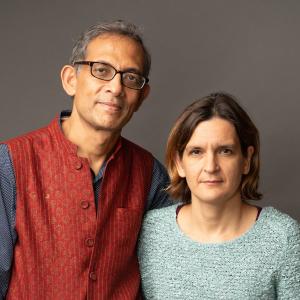
The objectives of aid are often unclear.... Reaffirming the most basic principle would provide clarity: The goal should be to invest in projects that will have the largest impact on the quality of life of poor people around the world.
—Abhijit Banerjee and Esther Duflo, The Financial Times, March 2025
Read our blog series
These eight installments share what we have learned about improving the lives and livelihoods of people who are experiencing poverty or affected by a volatile climate. We discuss how these lessons have changed thinking, investments, and outcomes that matter—like people living longer and healthier lives, escaping extreme poverty, and gaining better economic opportunities.
Discover more perspectives from the J-PAL network
Abhijit Banerjee and Esther Duflo: Foreign aid can be effective without the US
Financial Times
Event video and recap: The future of foreign aid, with Rachel Glennerster and Stefan Dercon
VoxDev
Why Dean Karlan, chief economist of USAID, resigned this week
NPR
Live at EA Global - The future of U.S. foreign aid (with Dean Karlan)
Clearer Thinking
Radical simplification: A practical way to get more out of limited foreign assistance budgets
Center for Global Development
The Future of U.S. Foreign Aid: A series of virtual conversations
Harvard Center for International Development
Esther Duflo, Nobel laureate: 'Development aid is not a waste of public money'
Le Monde
Acknowledgements: The Evidence Effect content was developed by many J-PAL authors, with leadership from Alison Fahey, Ying Gao, Eliza Keller, and Lisa de Rafols. The microsite was designed by Elizabeth Bond and illustrations were created by Lucy Nguyen. We are grateful for John Martello's vision and support in enabling this project.
Suggested citation: Abdul Latif Jameel Poverty Action Lab (J-PAL). 2025. “The Evidence Effect.” Last modified: July 2025. www.povertyactionlab.org/evidence-effect
Photos: (1) Two farmers uproot rice seedlings for transplantation during monsoon season in India. Credit: Shutterstock.com; (2) A woman laughs as an enumerator measures her height in her home in Borong, East Nusa Tenggara, Indonesia. The measurement was part of an impact evaluation of an information campaign focused on preventing malnutrition. Credit: Miranda Putri, J-PAL; (3) Credit: Official, Shutterstock.com
